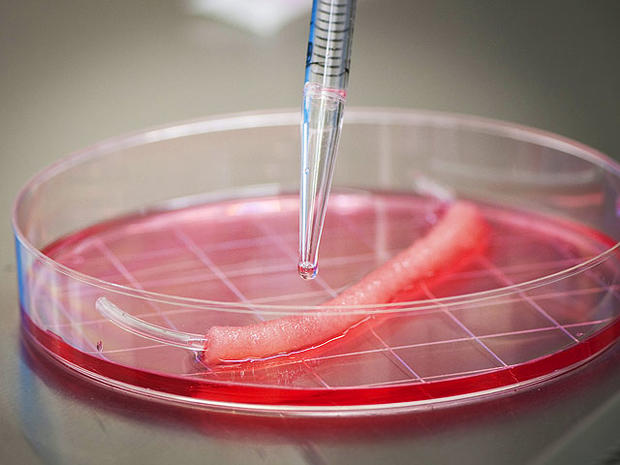Urethra grown from patient's own cells: What next from "regenerative medicine?"
(CBS) Need a spare urethra? Doctors soon may be able to tailor one for you in the lab.
That's the promise of a new study from the fast-growing field of regenerative medicine, in which doctors successfully repaired injured urinary tracts using "urine tubes" made from cells taken from the patients' own bladders.
Beginning in 1998, a team led by researchers at the Institute for Regenerative Medicine at Wake Forest University used such "engineered tissue" to surgically repair urethral damage in five boys, according to a written statement released by the university.
Over six years of follow-up, all of the tubes continued to function well. The usual approach to repairing such urethral damage - in which doctors repair the damage using tissue grafts taken
from the patient's skin or cheek lining - fail more than 50 percent of the time.
"These findings suggest that engineered urethras can be used successfully in patients and may be an alternative to the current treatment," study author Dr. Anthony Atala, director of the institute, said in the statement.
To make the urine tubes, doctors took a postage-sized piece of tissue from the bladder and then grew cells from the tissue and placed them on three-dimensional "scaffolds" shaped like actual urethras. The resulting tubes were transplanted into the boys, whose own urinary systems had been damaged by severe trauma. In addition to trauma, disease and birth defects are common causes of such urethral damage.
Dr. Atala called the research "an example of how the strategies of tissue engineering can be applied to multiple tissues and organs."
Multiple organs? Atala isn't kidding. Researchers at the institute
are working to engineer replacements for more than 30 different tissues
and organs, including blood vessels, bone, corneas, heart, intestines, liver, and kidney.
